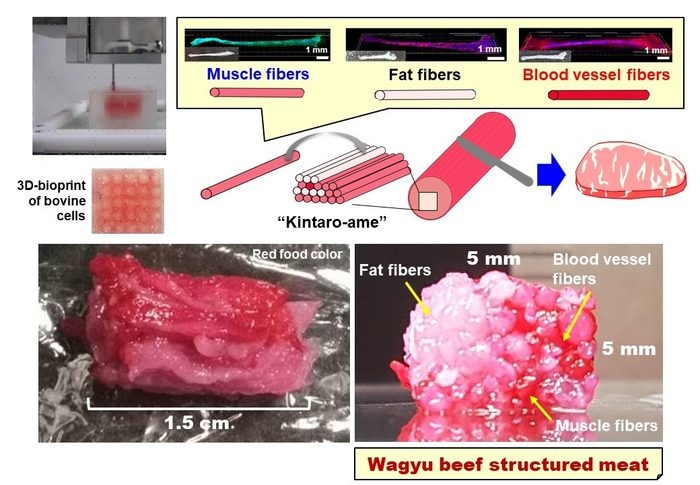Japanese scientists create realistic Wagyu steak with 3D printing
Japanese scientists have published a new study detailing the successful creation of marbled Wagyu beef made using 3D printing technology. The manufactured meat product contains everything you'd expect from a steak, including protein, fat, and even blood vessels. Such "cultured" steaks are more environmentally friendly than their traditional counterparts.
Wagyu beef is a pricey, highly sought variety of beef from Japan; it is distinct from its cheaper counterparts due to the extensive fat marbling in the muscle tissue, giving it a unique texture. While steak remains popular, raising cattle has been rightly criticized as an unsustainable activity that contributes to climate troubles.

Cultured meat, which is grown in a lab, has been presented as a future solution to the climate and environmental problems that come with raising livestock. Though the technology has increased substantially over the past few years, 3D-printed steaks are still often lacking the complex cellular structure of actual animal-harvested beef.
Researchers at Osaka University address this in their new study, reporting that they were able to produce their own synthetic beef with a realistic cellular structure using a 3D printing method. Two types of bovine stem cells were used as part of the process, which were grown and then fabricated using bioprinting.
The end product is a beef printing system that can be used to produce customized beef products, including the popular and complex fat-marbled Wagyu steak. Other configurations with, for example, lower fat content could also be produced.
